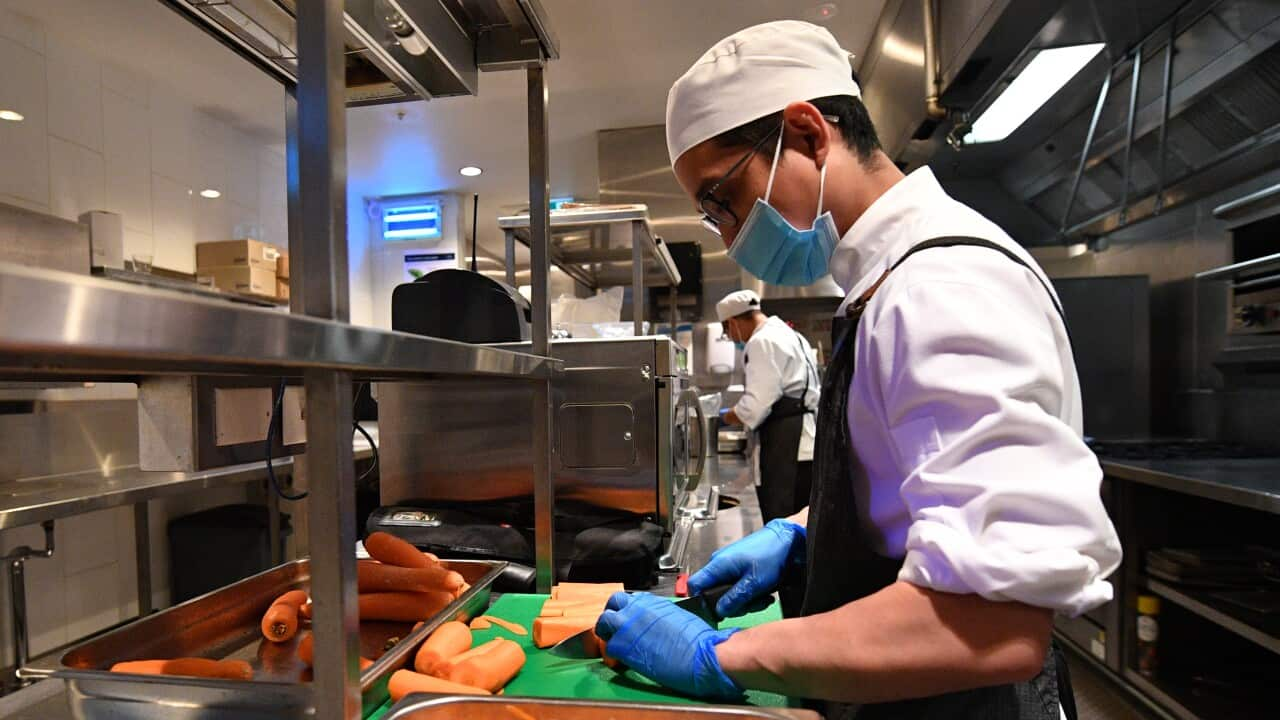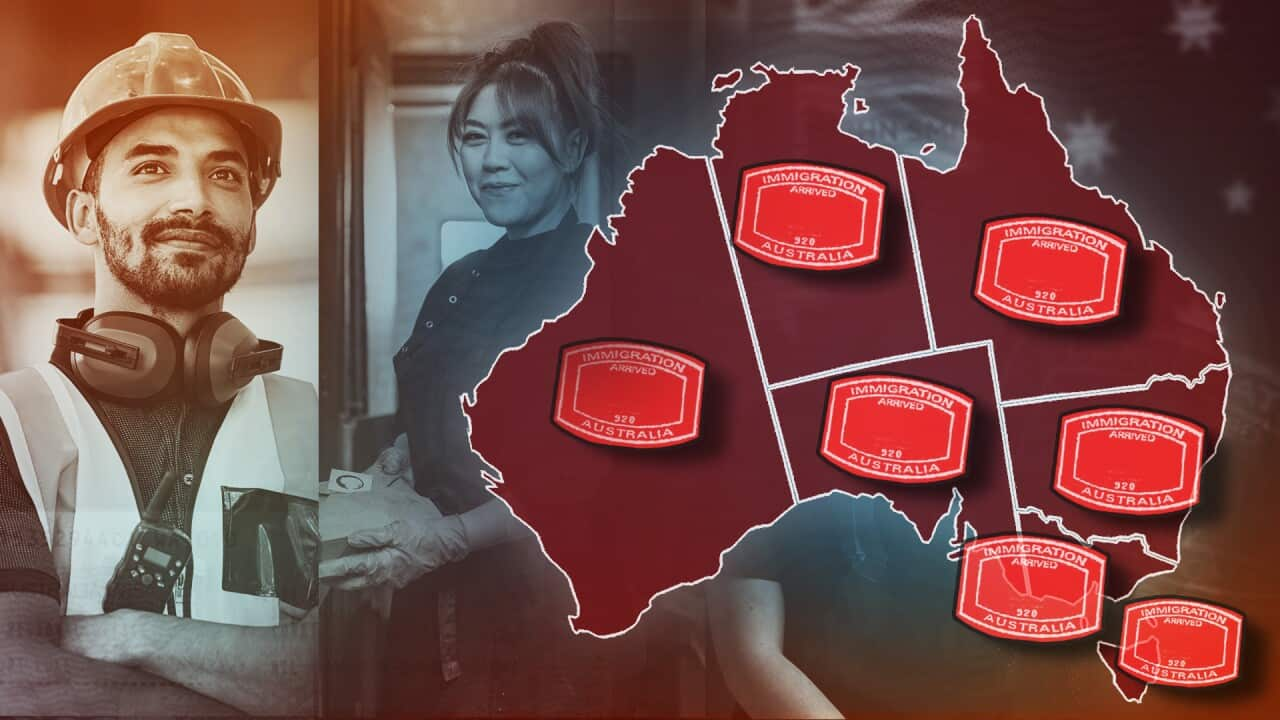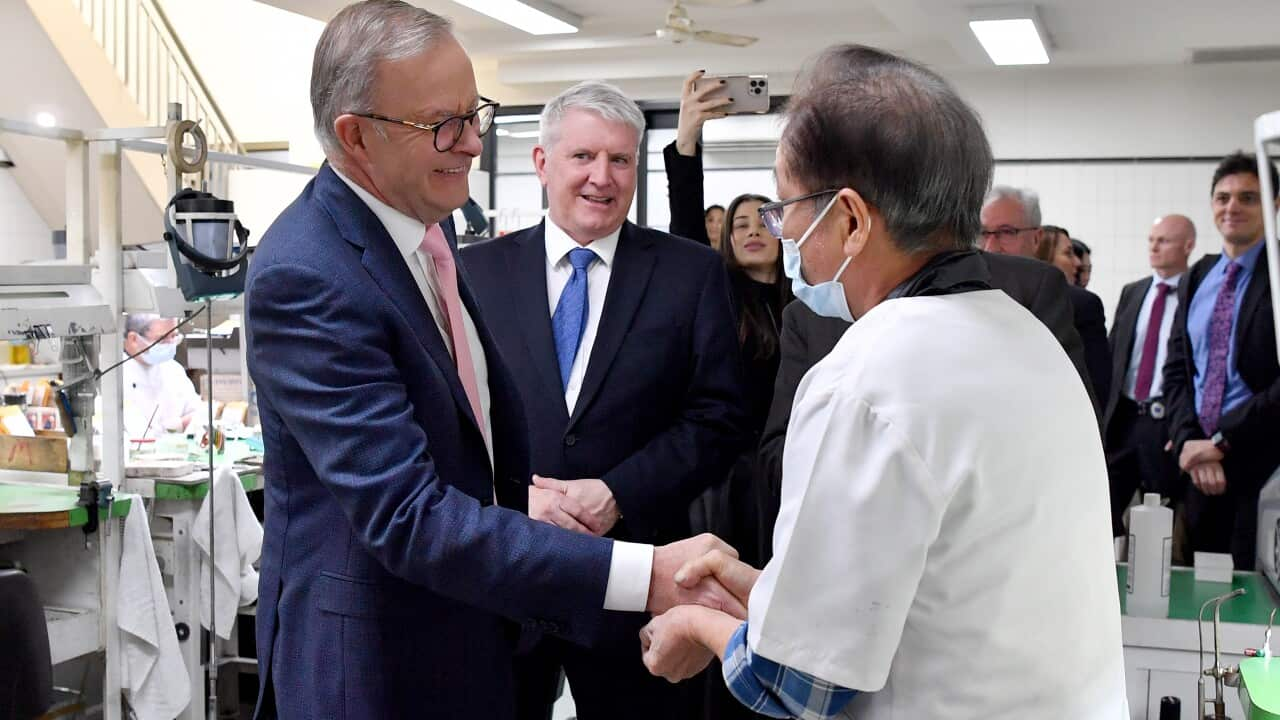Key Points
- There have been calls for the federal government to lift the minimum salary for temporary sponsored migrants
- The ACTU is calling for a mimum salary of $91,000, while the Grattan Institue says it shoudl be $70,000
In an effort to address , there have been calls for the federal government to significantly increase the minimum salary temporary sponsored migrants can receive.
The Temporary Skilled Migration Income Threshold (TSMIT) has been frozen at $53,900 since 2013, after successive Coalition governments chose not to raise it.
The Australian Council of Trade Unions (ACTU) has taken a proposal to to increase it by $37,000 to around $91,000 - to be indexed annually by the wage price index.
The summit will wrap up on Friday afternoon after examining ways to strengthen and improve Australia's economy and labour market.
Dr Joanna Howe, Associate Professor in Law at the University of Adelaide, said increasing TSMIT is "long overdue".
"But a higher TSMIT in and of itself isn't enough to ensure that these workers are protected in the labour market," she told SBS News.
"There does need to be verification that the job offer and the payment amount is commensurate to what an Australian worker would receive in that job."
Increasing TSMIT is also backed by the Grattan Institute, but it has proposed increasing wages for temporary skilled migrants to a more conservative minimum of $70,000.
Brendan Coates, director of the Grattan Institute's economic policy program, said the rate put forward by the ACTU would make around two-thirds of people already on temporary sponsored visas ineligible for the program.
"People come to Australia as temporary sponsored migrants when they're young, and then they often transition to become permanent skilled migrants earning higher wages over time," Mr Coates told SBS News.
"If you set the wage threshold too high, the risk is obviously that businesses can't attract skilled workers, but also you lose the ability to recruit people who often then form the bedrock of the permanent skilled migration program down the track, earning much higher salaries."
For the permanent skilled migration program, the Grattan Institute is pushing for an $85,000 minimum threshold.
Treasurer Jim Chalmers said it was time for a "conversation about the best level" to set TSMIT at.
"There are a range of mechanisms and levers in the migration system and in the skills system, which the relevant ministers will look at," he told ABC Radio last week.
"Our view is that there is a role for migration in filling genuine labour shortages, but not as a substitute for training more Australians for more opportunities."
According to figures published by the Department of Home Affairs, as of 30 June there were 51,770 skilled workers on temporary visas in Australia.
The Grattan Institute has suggested Australia's skilled migration system move away from being focused on a list of occupations to opening it up to any higher-wage workers.
Mr Coates said it will not only make it easier for employers to sponsor migrant workers in the first place, it will allow them to fill jobs much quicker.
"Those occupation definitions are only updated about once every decade, so for a long time, it was impossible to hire a data scientist in Australia as a sponsored migrant," he said.
"That's clearly not a good place to be when we’re in a world where we're trying to attract talent into growing, highly-innovative sectors like the technology sector, like parts of healthcare and medical research.
"That's why a wage threshold is a much, much simpler way of making sure that businesses with a genuine need for talent, that need to be globally competitive, can get the workers that they need to be able to grow their businesses.
Pi-Shen Seet, professor of entrepreneurship and innovation at Western Australia's Edith Cowan University, said if Australia wants to attract the very best people in their field, changes needs to be made to the skilled migration system.
"You've got to look at your competitors and see what they're doing and learn from them," he told SBS News.
"From next year, Singapore will see a visa whereby you will have to earn something like $30,000 a month, before you can get on this platinum visa, and this will be aimed at the top five power cent of what they call the Employment Pass holders.
"Even places like the UK, if you have a degree from the top 50 universities globally, you can get a fast-tracked visa."












